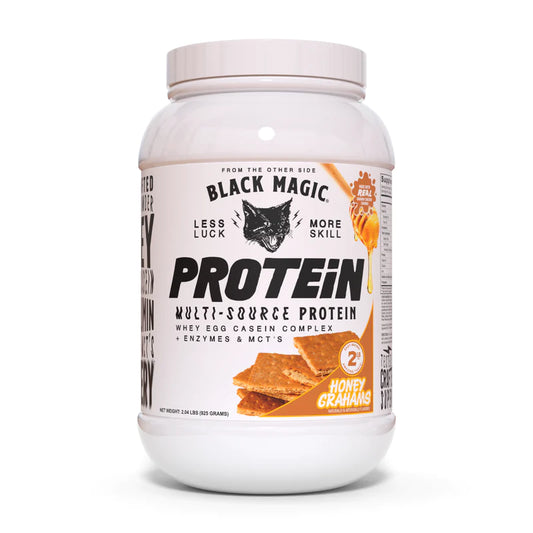Amino acids are the building blocks of protein and critically important for building muscle mass. There are 20 different amino acids that make up all proteins in the body, 9 of which are considered essential amino acids (EAAs) because the body cannot produce them - they must be obtained through the diet. The 3 branched-chain amino acids (BCAAs) - leucine, isoleucine, and valine - make up a significant portion of the EAAs.
Both EAAs and BCAAs play important roles in muscle protein synthesis. However, there is ongoing debate in the fitness community regarding which is more effective for supporting muscle growth. This article will compare EAAs vs BCAAs - their functions, benefits, and drawbacks - to determine which amino acid supplements may be better for maximizing muscle gains.
EAAs Functions and Benefits
The 9 essential amino acids are: histidine, isoleucine, leucine, lysine, methionine, phenylalanine, threonine, tryptophan, and valine. EAAs cannot be produced by the body and must come from food sources. Complete proteins like meat, eggs, and dairy contain all 9 EAAs while plant proteins are often low in certain EAAs.
EAAs provide the necessary building blocks for synthesizing muscle protein and repairing muscle tissue damage from exercise. Each of the EAAs plays a role in muscle protein synthesis, although the 3 BCAAs have been most extensively researched for their anabolic effects.
Research shows that consuming EAA supplements leads to greater muscle protein synthesis compared to consuming BCAAs alone. A study in the Journal of the International Society of Sports Nutrition found that 6.7 grams of EAAs stimulated muscle protein synthesis by over 30%, while an equal amount of BCAAs had no effect.
The main mechanisms by which EAAs support muscle growth include:
- Activating the mTOR pathway - EAAs, particularly leucine, activate the mTOR signaling pathway which stimulates muscle protein synthesis.
- Increasing insulin response - EAAs enhance the insulin response to a protein meal or shake which aids in transporting amino acids into muscle cells.
- Preventing muscle breakdown - EAAs help reduce muscle protein breakdown during and after exercise by blocking catabolic processes.
- Improved nutrient delivery - EAAs enhance blood flow to deliver nutrients like glucose and amino acids to working muscles.
By providing all 9 essential aminos, EAA supplements can optimize the environment for building muscle mass. They are especially useful around workouts to enhance recovery and anabolic responses.
BCAAs Functions and Benefits
The 3 branched-chain amino acids are leucine, isoleucine, and valine. They are considered essential amino acids and make up approximately one third of muscle protein. BCAAs offer unique benefits for muscle growth and performance:
- Stimulate muscle protein synthesis - Like complete EAAs, BCAAs activate mTOR and increase muscle protein production. Leucine is thought to be primarily responsible for this anabolic stimulus.
- Decrease muscle protein breakdown - BCAAs help attenuate the breakdown of muscle proteins during intense exercise, promoting a net positive muscle protein balance.
- Reduce exercise fatigue - BCAAs can help delay central fatigue and mental exhaustion during your workouts, allowing you to train harder for longer periods.
- Improve glucose uptake - Studies show BCAA supplements increase glucose uptake into muscle cells, improving the body’s use of glucose for energy production.
- Enhance fat loss - BCAAs may help boost fat burning, particularly in a calorie deficit. Leucine activates metabolic pathways that enhance fat oxidation.
While BCAAs offer powerful training and body composition benefits, research suggests they are not as effective at stimulating muscle growth when not combined with the other EAAs.
EAAs vs BCAAs For Muscle Growth
Based on the current scientific evidence, essential amino acid supplements appear to be superior to BCAAs alone when it comes to maximizing muscle growth:
- Greater boost in muscle protein synthesis - As mentioned, EAAs have been shown to stimulate MPS by over 30% compared to no effect from an equivalent BCAA dose. The combination of all 9 essential aminos provides greater anabolic signaling.
- Better activation of anabolic pathways - While BCAAs activate mTOR, studies show the activation is enhanced when all EAAs are present rather than just leucine alone. The combination of EAAs optimizes the environment for muscle building.
- Increased amino acid delivery - Consuming a balanced profile of EAAs enhances amino acid transport into muscle cells compared to single aminos like leucine. This promotes availability of all the necessary aminos to produce muscle proteins.
- Improved lean mass gains - Most studies comparing the effects of EAA and BCAA supplementation on muscle growth report greater lean mass gains from EAA supplementation compared to BCAAs alone.
- Mitigate unwanted fat gain - There is some evidence that unbalanced consumption of individual amino acids like leucine could lead to negative effects on fat gain. A balanced EAA profile may be better for supporting lean gains.
While BCAAs still offer benefits related to muscle recovery and performance, EAA supplements appear to provide a more complete package for boosting muscle growth by providing the full profile of essential aminos.
Recommended EAA Supplementation
Research indicates that 3-6 grams of essential amino acids is an effective supplement dose for stimulating muscle protein synthesis. Most EAA supplements provide around 6 grams per serving, often in a 2:1:1 ratio of leucine, isoleucine and valine.
EAA supplements can be taken at various times:
- Pre-workout - Taking EAAs 30-60 minutes pre-workout can help maximize muscle protein synthesis from training.
- Intra-workout - Sipping an EAA drink during your workout provides amino acids when muscles need them most to support growth.
- Post-workout - Within 1 hour after training, EAAs enhance recovery and growth.
- Between meals - EAAs supplements between meals helps keep muscle protein synthesis elevated all day long.
While EAAs can be consumed any time of day, they may provide maximum benefits around workouts when muscles are primed for anabolic processes. Adding EAAs to your pre, intra, or post-workout nutrition stack can pay big dividends for boosting muscle gains over time.
Conclusion
Both essential amino acids (EAAs) and branched-chain amino acids (BCAAs) play central roles in muscle growth and recovery. However, the weight of research evidence suggests that complete EAA supplements provide greater benefits for enhancing muscle protein synthesis and increasing lean mass compared to BCAAs alone.
By providing all 9 essential aminos, EAAs optimize activation of anabolic pathways involved in muscle building. While BCAAs offer unique benefits related to performance and fatigue resistance, EAA supplements appear superior for maximizing the adaptive response to strength training.
Making EAAs part of your daily nutritional regimen, especially around workouts, can help give your muscles the raw materials they need to grow bigger and stronger over time.




